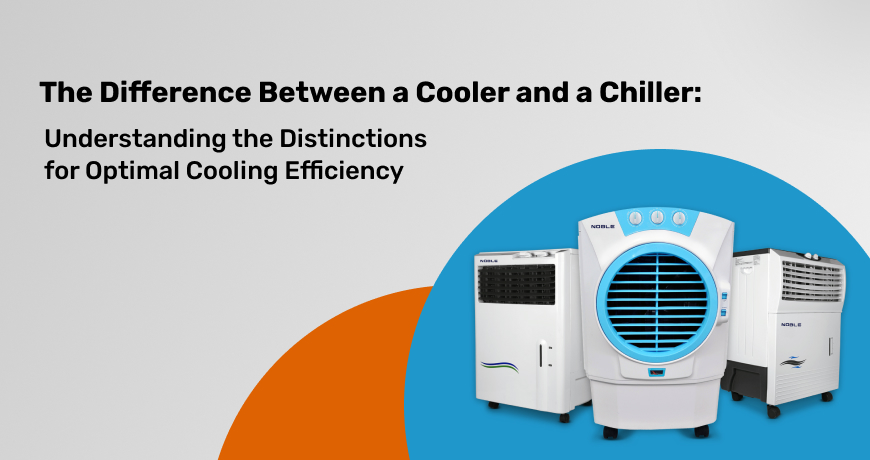When it comes to Cooling System Installation In Mississauga, homeowners often encounter the terms “cooler” and “chiller.” While both are designed to provide cooling comfort, they have distinct differences in terms of functionality and applications. In this comprehensive blog post, presented by Sentral HVAC & Plumbing, the trusted experts in home maintenance in Mississauga, Oakville, Burlington, Milton, Etobicoke, Brampton, Toronto, and Hamilton, we will explore the distinctions between coolers and chillers.
Understanding these differences is crucial for selecting the right cooling system for your specific needs and achieving optimal cooling efficiency.
Join us as we delve into the world of coolers and chillers and provide valuable insights to help homeowners make informed decisions for their cooling requirements.
The Basics of Cooling Systems
Before we dive into the differences between coolers and chillers, let’s first establish a basic understanding of cooling systems. Cooling systems are designed to remove heat from an environment, creating a comfortable and cool indoor atmosphere. They achieve this by utilizing various techniques such as evaporation, compression, and refrigeration.
Understanding Coolers
Coolers, also known as evaporative coolers or swamp coolers, rely on the process of evaporation to cool the air. These systems are commonly used in dry climates where humidity levels are low. Coolers work by drawing in warm air from outside and passing it through a moistened pad. As the air passes through the pad, the water evaporates, causing the air temperature to drop. The cooled air is then circulated into the indoor space, providing a refreshing and comfortable environment.
Coolers are known for their energy efficiency and relatively low operating costs compared to other cooling systems. They are also environmentally friendly, as they do not use refrigerants or compressors. However, coolers are most effective in dry climates, as high humidity levels can limit their cooling efficiency.
Exploring Chillers
Chillers, on the other hand, are refrigeration systems that use a compressor to remove heat from an environment. These systems are commonly used in commercial and industrial settings, but they can also be found in larger residential properties. Chillers work by circulating a refrigerant through a closed-loop system. The refrigerant absorbs heat from the indoor space and transfers it to the chiller unit, where it is then expelled to the outside environment.
Chillers offer precise temperature control and are capable of cooling large spaces efficiently. They are often used in buildings that require consistent and reliable cooling, such as hospitals, data centers, and manufacturing facilities. Chillers can operate using various types of refrigerants, including environmentally friendly options, depending on the specific requirements and regulations.
Key Differences Between Coolers and Chillers
Now that we understand the basics of coolers and chillers, let’s explore the key differences between these two types of cooling systems:
1. Cooling Mechanism
Coolers rely on the process of evaporation to cool the air, while chillers use refrigeration and compression to remove heat from the environment.
2. Humidity Considerations
Coolers work best in dry climates with low humidity levels. In contrast, chillers are not affected by humidity and can provide efficient cooling in any climate.
3. Cooling Capacity
Coolers are typically suitable for smaller spaces, such as individual rooms or small homes. Chillers, on the other hand, are designed to cool larger areas and are commonly used in commercial and industrial settings.
4. Energy Efficiency
Coolers are known for their energy efficiency and relatively low operating costs. Chillers, while efficient for larger spaces, may have higher energy requirements and operating costs.
5. Applications
Coolers are commonly used in residential settings, particularly in dry climates. Chillers are prevalent in commercial, industrial, and larger residential properties that require precise temperature control and cooling for extensive areas.
Choosing the Right Cooling System
When it comes to selecting the right cooling system for your specific needs, several factors come into play. Consider the size of the space you need to cool, the climate in your area, your energy efficiency requirements, and your budget. Consulting with a professional HVAC technician, such as Sentral HVAC & Plumbing, can provide invaluable guidance in determining the most suitable cooling system for your home or business.
Understanding the distinctions between cooler and chiller systems is essential for homeowners seeking optimal cooling efficiency. Coolers are suitable for smaller residential spaces in dry climates. Chillers, on the other hand, are commonly found in commercial and industrial settings.
By considering factors such as cooling mechanism, humidity considerations, cooling capacity, energy efficiency, and specific applications, homeowners can make informed decisions when selecting the right cooling system for their needs.
Trust Sentral HVAC & Plumbing, the leading experts in home maintenance in Mississauga, Oakville, Burlington, Milton, Etobicoke, Brampton, Toronto, and Hamilton, for professional guidance and installation of your cooling system. Achieve optimal cooling efficiency and enjoy a comfortable indoor environment with the right Cooling System Installation In Mississauga for your home or business.





